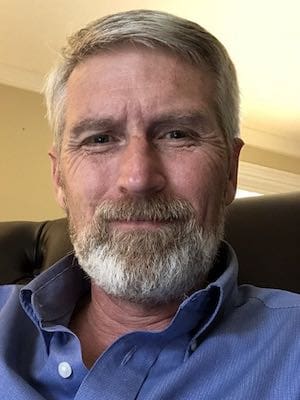This weekend marked the 10th anniversary of National Donor Sabbath. Since 1996 faith communities throughout the nation have observed the opportunity to discuss organ donation over the weekend that falls two weeks before Thanksgiving.
Suzette King is one of more than 88,000 in America currently on a waiting list in need of an organ transplant.
Suzette’s liver is failing. Her legs and feet are beginning to swell to the point where mobility is becoming a real challenge. The constant itching is almost unbearable. She is now at the point where she can no longer take medication for pain. Some days bring mental confusion, which is a very depressing aspect for this very talented kindergarten teacher. Suzette taught at Sunset Elementary School for 12 years.
Suzette has found herself in an odd place in life. She realizes that the length of her life cannot be measured in large spans of time without another liver. Yet, she knows that if God grants her that gift, it means that someone will have to be generous enough and intentional enough to think of others during a very difficult time in their own lives.
The moment of death, especially an unexpected or untimely death, is not the best time to think about organ donation for the first time. The best time to think about organ donation and entertain that thought in a serious way is when you are healthy, full of life, and enjoying all that God has given you.
Jesus once said, “So in everything, do to others what you would have them do to you.”
There’s not a one of us, if we were in Suzette’s shoes, who would not be praying for a liver, hoping to have not only years added to our lives, but also quality of life added to our lives. If that’s what we would want for ourselves, why would we not want to make that possible for others?
To become an organ donor it is important to tell family members of our wishes. Ultimately, family members make decisions about the deceased at the time of death. Therefore, communication to family members that we want to be an organ donor doesn’t guarantee that it will happen. There must be family cooperation. However, most of the time, family members will honor our requests, knowing that in their deep loss, our love and compassion can live on in someone else through our organs and tissue, giving them opportunities at life that otherwise would not have been possible.
Signing and carrying an organ donor card is another important part of informing others of our wishes to be organ donors. This can alert medical personnel of our desires and will encourage them to ask important questions of family members in a timely manner.
According to LifeLink of Georgia, one donor can potentially benefit 60 or more people. This is done at no costs to the donor family. The body is not altered in appearance. Funeral arrangements are not affected and open viewing is still possible. All major religions approve of organ and tissue donation and consider it an act of charity.
The deepest fear that keeps many people from becoming organ donors is the misconception that doctors will not work as hard to save them if they realize their organs might be used to save others.
It’s important that everyone understand that a patient’s physician and nursing staff are not and cannot be involved in any discussion with family about organ donation. This role is saved for trained staff members who specialize in talking to families about organ donation and this takes place only once brain death has been firmly established. A physician’s sworn role is to help his or her patient, not some unknown doctor’s patient in a transplant center somewhere.
Also, recipients are chosen based solely on medical need and immediate availability. Their identity remains anonymous so that wealthy or famous patients are not favored.
Suzette King prays to receive an act of charity from someone in the event of his or her death. Her desire for life is understandable.
Yet, she doesn’t want to live for herself only. She’s a teacher at heart. By nature, teachers are giving people. They give of themselves so their students can take wing and fly. She wants to contribute again and make a difference in the lives of children.
But first, someone, somewhere, must be unselfish enough to sign a donor card and speak to his or her family about organ donation in the event of his or her death. A family somewhere has to be willing to give the gift of life in the event of their own grief.
None of us likes to think about death. Think about it this way. Signing donor cards and letting our families know we want to be organ donors is really thinking about life. It’s about saving lives like Suzette’s, people who still have lots to contribute to this world, people who still have lots of love to give to family, friends, community, church and students, if their bodies will allow them to do so.
Give the gift of life. Be an organ donor.
Michael Helms is pastor of Trinity Baptist Church in Moultrie, Ga. His column appears in The Moultrie Observer.

